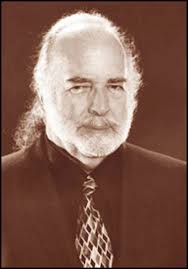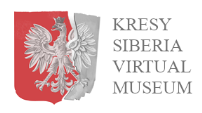Personal Details

|
||
| Name: | Wiesław Adamczyk | |
| Maiden Name: | ||
| Nickname/Pseudonym: | ||
| Gender: | Male | |
| Date of birth: | 1933- | |
| Place of birth: | Poland, Wołyńskie, Równe, Sarny | |
| Did this person die during World War ll?: | No | |
| Date of death: | 2018-10-13 | |
| Place of death: | United States | |
| Cause of Death: | ||
| Fathers given name: | Jan | |
| Entry ID: 90345 | Mothers given name: | Anna |
| Mothers maiden name: | ||
| Given name of spouse: | ||
| Maiden name of spouse: | ||
| Given name(s) of children: | George | |
| Description: | His father was executed at KATYN, and his mother died shortly after they arrived in Persia.[source: https://www.chicagotribune.com/news/obituaries/ct-met-wesley-adamczyk-obituary-20181113-story.html]"In 1940, Wesley Adamczyk was a 7-year-old living in the town of Sarny, then in Poland, when he and his mother, brother and sister were deported to Kazakhstan by occupying Soviet soldiers.His recounting of that time, “When God Looked the Other Way,” was published in 2004 by the University of Chicago Press, which called it “a memoir of a boyhood lived in unspeakable circumstances, a book that not only illuminates one of the darkest periods of European history but also traces the loss of innocence and the fight against despair that took root in one young boy.”Adamczyk, 85, died Oct. 13 in JourneyCare in Glenview of complications from Merkel cell carcinoma, an aggressive form of skin cancer, according to his son George. He was a longtime resident of Deerfield.Adamczyk and his family were deported following the agreement between the Soviet Union and Germany to split Poland in the wake of their separate 1939 invasions of the country, with the Soviet Union taking the eastern portion of the country. The occupation and campaign against Polish leaders included the Katyn Massacre, the name given to a series of mass executions the Soviets acknowledged in 1990. More than 22,000 Poles, including army officers, intellectuals and other leaders of the country, were killed and their bodies dumped in mass graves. The victims included Adamczyk’s father, an officer in the Polish army.Adamczyk’s life story was a remarkable one, and so was the path the book took to its 2004 publication. “It was owing to Wesley’s pluck,” said Leslie Keros, at the time a production editor for the U. of C. Press. “He presented himself to the press (office) and asked to speak to an editor.”Keros went to coffee with Adamczyk and spent an hour instead of the 10 minutes she planned. “Not only was the manuscript engrossing, but he was too,” said Keros, a book editor and radio host.She put Adamczyk in touch with a freelance editor. A year passed before the book came back to the press, still in need of more editing. Keros worked with Adamczyk for another year. “He was a very patient man,” she said.Finally, the book was accepted by the press. “It was a very exciting process,” Keros said.Wieslaw Adamczyk was born in 1933 in Sarny, which is now in Ukraine. After his father left the family to be with his army unit, his mother made what preparations she could for an uncertain future, Adamczyk wrote. That included sewing jewelry into the hems of her dresses and coats and those of her daughter. She also baked jewelry into loaves of bread, which she dried to provide a lasting supply of food for the family.“I watched her insert into the dough many pieces of jewelry including her grandmother’s gold earrings, a gold crucifix, and gold bracelets,” Adamczyk wrote in his book. “After the bread had baked, I helped her and (my sister) cut it into large pieces. Later the bread was dried in the oven and packed into large potato sacks. How Mother identified the pieces with jewelry hidden inside, I have never learned.”Adamczyk and his family endured many hardships in exile, with little food and harsh living conditions. Their chance at escape came after Russia joined the Allies in 1941.With no papers to make good their escape, Adamczyk’s mother led her children on what was supposed to look like a casual daytime stroll. The family eventually got a carriage ride to a train, where Adamczyk’s mother exchanged a gold watch for tickets. The family finally made their way to Iran, where Adamczyk’s mother died.After spending time in an orphanage in England, Adamczyk, then 16, his brother and sister arrived in Chicago in 1949. He had an aunt here who sent him to a private boarding school in Wisconsin. He returned to Chicago and put himself through night school at DePaul University, where he earned a degree in chemistry.After a hitch in the Army, Adamczyk spent his entire working career at Lever Brothers in Whiting, Ind. He also had a side business doing tax returns as Suburban Income Tax in south suburban Dolton.Filmmaker Christopher Swider interviewed Adamczyk for “Children in Exile,” his award-winning documentary film on survivors of Soviet deportation. “He was very dynamic,” Swider said. “He was a character and a lot of fun to be around.”In addition to all his other accomplishments, Adamczyk was a top-rated bridge player, a Diamond Life Master with 5,000 masterpoints, according to his son.Adamczyk is also survived by four grandchildren.His first marriage ended in divorce. His second wife, Barbara Doerr Adamczyk, died in 2000." |
Personal Situation at the outbreak of WWll
| Residence at the outbreak of WWll: | Poland, Wołyńskie, Sarny, Sarny, |
| Kresy Inhabitant Status: | Military settler / Family member of military settler |
| Ethnicity: | Polish |
| Religion: | |
| Education Level: | |
| Occupation at the outbreak of WWll: | Child of 7 |
| Military status at the outbreak of WWll: | |
| Military Rank at the outbreak of WWll: |
Deportations and Repressions
| FROM: yyyy | mm | dd | To: yyyy | mm | dd | To: Soviet socialist republic | Oblast | Locality |
|---|---|---|---|---|---|---|---|---|
| 1940 | 04 | 00 | 1942 | 00 | 00 | Kazakh SSR |
| Other Information: | Anna Adamczyk was deported with her children Jurek (17), Zosia (13) and Wiesiu (7). When they were released by the 'amnesty' for Polish prisoners, Jurek made his way south to join the Polish Army at Totskoye. It was months later before Anna, Zosia and Wieslaw were able to reach Krasnovodsk, where they were reunited with Jurek who was in a field hospital being treated for malnutrition and exhaustion. They left the Soviet Union on a Soviet freighter bound for Persia. Two days later they arrived in Pahlevi. Disease among the malnourished and exhausted Polish refugees was rife - dysentry, typhus and typhoid flourished. Anna Adamczyk became ill and died on 18 October 1942. She was 45. |
For those who were repatriated to Poland from the Kresy or the USSR, please provide the following information
| Date of return to Poland: | // |
| Province: | |
| County: | |
| Locality: | |
| Nearest large city: |
For those who stayed in the Kresy area during WWII, please provide the following information
| Province - as at 1939: | |
| County: | |
| City / Place: | |
| Nearest Large City: |
| Other Military Service: | |
| Participation in WWII battles: | |
| Medals received: | |
| Other Battles: |
Other Wartime Circumstances
| Other Information: | Wieslaw Adamczyk wrote of his experiences in the book titled "When God Looked the Other Way" published by University of Chicago Press in 2014. ISBN: 978-0226004440 |
| Orphanages: | |
| Civilian Camp in the Middle East: | Lebanon |
| Civilian Camp in India: | |
| Civilian Camp in Africa: | |
| Please provide information if none of the preceding apply: | Pahlevi and Teheran in Persia, then Lebanon. |


